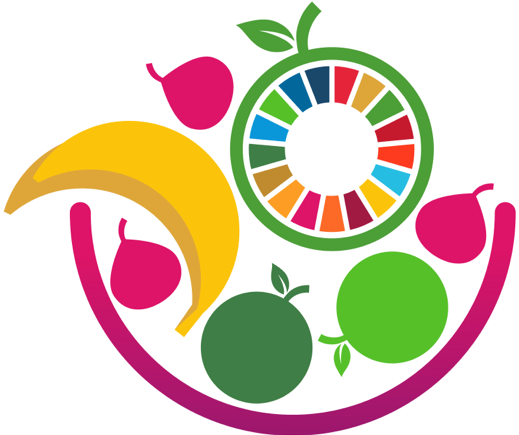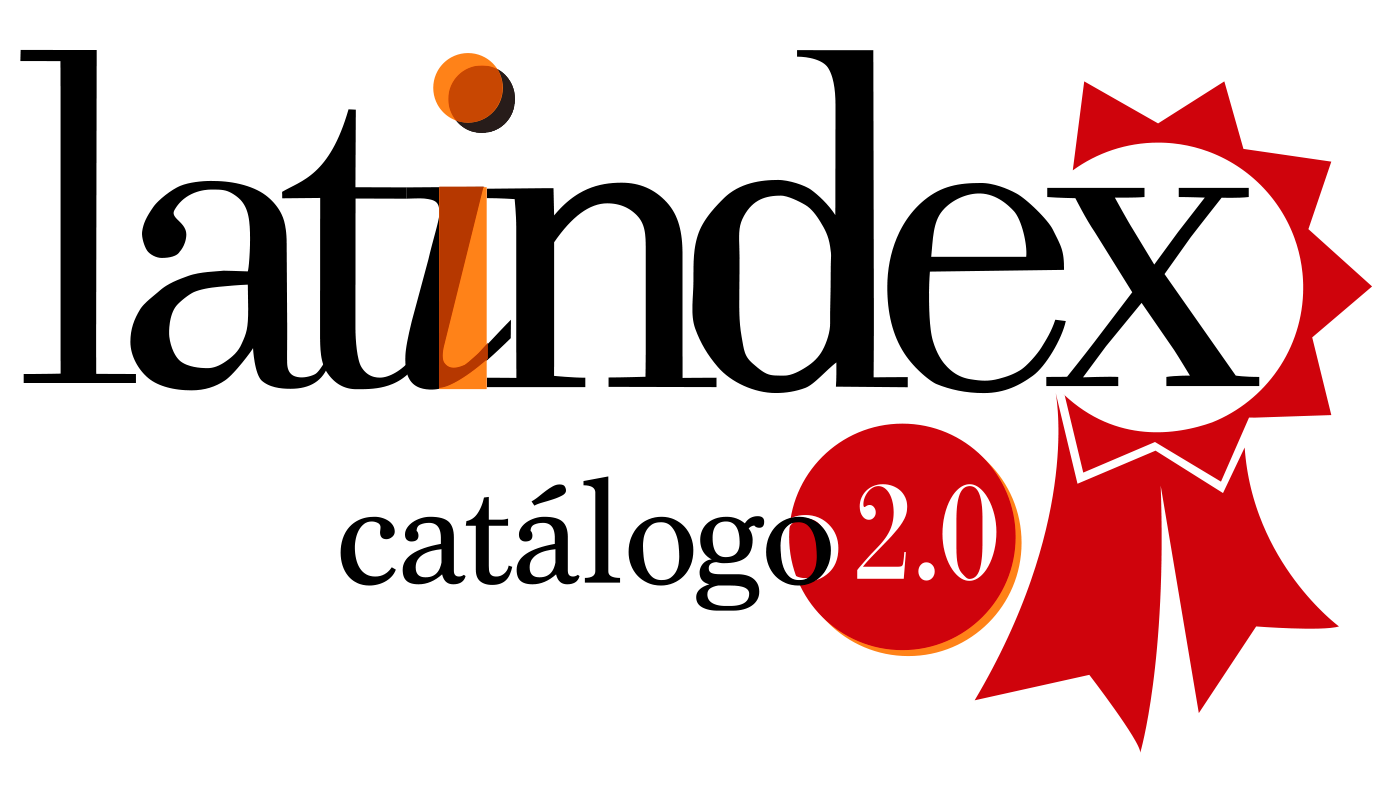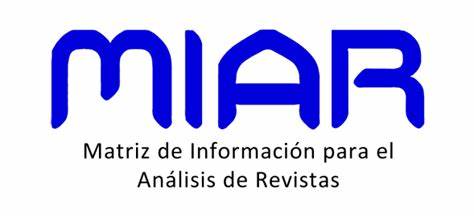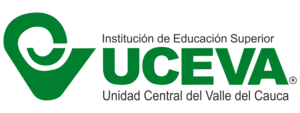Cumbre de Sistemas Alimentarios de la ONU 2021: Desmantelando la democracia y restableciendo el control corporativo de los sistemas alimentarios
DOI:
https://doi.org/10.54502/msuceva.v2n1a13Palabras clave:
Asociaciones de multi-stakeholders, comité de seguridad alimentaria mundial, control corporativo, Cumbre de sistemas alimentarios de las Naciones Unidas, gobernanza global, sistemas alimentarios, multilateralismoResumen
Este artículo analiza el desarrollo y la organización de la Cumbre de Sistemas Alimentarios de las Naciones Unidas (UNFSS), que está siendo convocada por el Secretario General de la ONU, António Guterres, a finales de 2021. Aunque pocas personas discutirán que los sistemas alimentarios globales necesitan transformación, ha quedado claro que la Cumbre es, en cambio, un esfuerzo de una poderosa alianza de corporaciones multinacionales, organizaciones filantrópicas y países orientados a la exportación para subvertir las instituciones multilaterales de gobernanza alimentaria y capturar la narrativa global de la “transformación de los sistemas alimentarios”. Este artículo sitúa la próxima Cumbre en el contexto de cumbres mundiales sobre la alimentación anteriores y analiza las preocupaciones expresadas por muchos miembros de la sociedad civil. Explica cómo la estructura y las formas actuales de reclutamiento de participantes y compromiso público carecen de transparencia y rendición de cuentas básicas, no logran abordar conflictos de intereses significativos e ignorar los derechos humanos. A medida que la pandemia de COVID-19 ilumina las vulnerabilidades estructurales del modelo neoliberal de los sistemas alimentarios y las consecuencias del cambio climático para la producción de alimentos, ahora más que nunca se necesita un compromiso de alto nivel con los sistemas alimentarios equitativos y sostenibles. Sin embargo, los autores sugieren que el UNFSS, en cambio, parece seguir una trayectoria en la que los esfuerzos para gobernar los sistemas alimentarios globales en el interés público han sido subvertidos para mantener el colonialismo y formas corporativas de control.
Descargas
Métricas
Citas
Schwab K. Stakeholder Capitalism: A Global Economy that Works for Progress, People and Planet. 1st ed. Geneve, Switzerland: JohnWiley & Sons; 2021. DOI: https://doi.org/10.36615/dps.v1i1.1254
Swinburn BA, Kraak VI, Allender S, Atkins VJ, Baker PI, Bogard JR, et al. The Global Syndemic of Obesity, Undernutrition, and Climate Change: The Lancet Commission report. The Lancet 2019;393:791–846. https://doi.org/10.1016/S0140-6736(18)32822-8 DOI: https://doi.org/10.1016/S0140-6736(18)32822-8
FAO, IFAD, UNICEF, WFP, WHO. The State of Food Security and Nutrition in the World 2020. Transforming Food Systems for Affordable Healthy Diets. Rome, Italy: 2020. https://doi.org/https://doi.org/10.4060/ca9692en. DOI: https://doi.org/10.4060/ca9692en
HLPE. Food security and nutrition: building a global narrative towards 2030. A report by the High-Level Panel of Experts on Food Security and Nutrition of the Committee on World Food Security. Rome, Italy: 2020.
Clark MA, Domingo NGG, Colgan K, Thakrar SK, Tilman D, Lynch J, et al. Global food system emissions could preclude achieving the 1.5° and 2°C climate change targets. Science (1979) 2020;370:705–8. https://doi.org/10.1126/science.aba7357 DOI: https://doi.org/10.1126/science.aba7357
Friedman H, McMichael P. Agriculture and the state system: The rise and decline of national agricultures, 1870 to the present. Sociologia Ruralis 1989;29:93–117. https://doi.org/10.1111/j.1467-9523.1989.tb00360.x DOI: https://doi.org/10.1111/j.1467-9523.1989.tb00360.x
Anderson MD. The role of knowledge in building food security resilience across food system domains. Journal of Environmental Studies and Sciences 2015;5:543–59. https://doi.org/10.1007/s13412-015-0311-3 DOI: https://doi.org/10.1007/s13412-015-0311-3
Anderson MD, Rivera-Ferre M. Food system narratives to end hunger: extractive versus regenerative. Current Opinion in Environmental Sustainability 2021;49:18–25. https://doi.org/10.1016/j.cosust.2020.12.002 DOI: https://doi.org/10.1016/j.cosust.2020.12.002
Phillips L, Ilcan S. “A world free from hunger”: Global imagination and governance in the age of scientific management. Sociologia Ruralis 2003;43:434–53. https://doi.org/10.1046/j.1467-9523.2003.00254.x DOI: https://doi.org/10.1046/j.1467-9523.2003.00254.x
Fakhri M. The International Political Economy of the right to food. In: Human Rights and Global Governance. 1st ed. Oxford: Oxford University Press; 2019.
ETC Group. Who Will Govern? Rome’s Food Summit May Determine Who Decides Who Will Eat. 2009.
Tubiana L. World Trade in Agricultural Products: from Global Regulation to Market Fragmentation. The International Farm Crisis, London: Palgrave Macmillan UK; 1989, p. 23–45. https://doi.org/10.1007/978-1-349-10332-4_2 DOI: https://doi.org/10.1007/978-1-349-10332-4_2
Shaw D. World Food Security: A History Since 1945. 1st ed. New York, NY: Palgrave Macmillan; 2007.
Jarosz L. The political economy of global governance and the world food crisis: the case of the FAO. Review (Fernand Braudel Center) 2009;32:37–60.
Clapp J, Moseley WG. This food crisis is different: COVID-19 and the fragility of the neoliberal food security order. The Journal of Peasant Studies 2020;47:1393–417. https://doi.org/10.1080/03066150.2020.1823838 DOI: https://doi.org/10.1080/03066150.2020.1823838
Ritchie M. Breaking the Deadlock. The United States and Agricultural Policy in the Uruguay Round. 1st ed. Minneapolis, MN: Institute for Agriculture and Trade Policy; 1993.
McMichael P. Food Regimes and Agrarian Questions. 1st ed. Halifax, NS: Practical Action Publishing; 2013 DOI: https://doi.org/10.3362/9781780448794.001
Madeley J. Hungry for trade: How the poor pay for free trade. 1st ed. London, UK: Zed Books; 2000.
Patel R, McMichael P. A political economy of the food riot. Review (Fernand Braudel Center) 2009;32:9–35.
Houtart F. Agrofuels: Big profits, ruined lives and ecological destruction. 1st ed. London, UK: Pluto Press; 2010.
UNCTAD. Trade and environment review 2013: Wake up before it is too late. 1st ed. Genève, Switzerland: United Nations Conference on Trade and Development; 2013.
Hoddy ET. Peasants’ rights and agrarian violence in transitional settings: From transitional justice to transformative agrarian justice. Journal of Human Rights 2021;20:91–109. https://doi.org/10.1080/14754835.2020.1850242 DOI: https://doi.org/10.1080/14754835.2020.1850242
Duncan J. Global Food Security Governance. Routledge; 2015. https://doi.org/10.4324/9781315754130 DOI: https://doi.org/10.4324/9781315754130
McKeon N. Food security governance. Routledge; 2014. https://doi.org/10.4324/9781315882529 DOI: https://doi.org/10.4324/9781315882529
Gitz V, Meybeck A. The establishment of the High-Level Panel of Experts on Food Security and Nutrition (HLPE). Shared, independent and comprehensive knowledge for international policy coherence in food security and nutrition. Paris, France: 2011.
Diouf J, Severino J. Africa must grow to rely on its own farms. 2008.
GRAIN. Seized: The 2008 Landgrab for Food and Financial Security. GRAIN 2008. https://grain.org/article/entries/93-seized-the-2008-landgrab-for-food-and-financial-security.
World Bank. World Development Report 2008: Agriculture for Development. Washington, DC., USA : 2007.
McMichael P. Value-chain agriculture and debt relations: contradictory outcomes. Third World Quarterly 2013;34:671–90. https://doi.org/10.1080/01436597.2013.786290 DOI: https://doi.org/10.1080/01436597.2013.786290
Action Aid International. Assessing the alliance for a green revolution in Africa. (AGRA) 2009.
https://actionaid.org/sites/default/files/aai_report_-_assessing_agra.pdf.
World Bank Group. World Development Report 2009 : Reshaping Economic Geography. Corporate Flagships World Development Report 2009:1–410. https://openknowledge.worldbank.org/handle/10986/5991.
IAASTD. Agriculture at a crossroads. Global Report. Washington, DC., USA : 2009.
McKeon N. Are equity and sustainability a likely outcome when foxes and chickens share the same coop? critiquing the concept of multi-stakeholders governance of food security. Globalizations 2017;14:379–98. https://doi.org/10.1080/14747731.2017.1286168
Newell P, Taylor O. Contested landscapes: the global political economy of climate-smart agriculture. The Journal of Peasant Studies 2018;45:108–29. https://doi.org/10.1080/03066150.2017.1324426 DOI: https://doi.org/10.1080/03066150.2017.1324426
Kip T. The UN should learn that ideology won’t stop a plague of locusts. Real Clear World 2020.
Mooney P. Blocking the chain: Industrial food chain concentration, big data, platforms and food sovereignty solutions. 1st ed. QC: ETC Group Publishing; 2018.
Giraldo OF, Rosset PM. Agroecology as a territory in dispute: between institutionality and social movements. The Journal of Peasant Studies 2018;45:545–64. https://doi.org/10.1080/03066150.2017.1353496 DOI: https://doi.org/10.1080/03066150.2017.1353496
United Nations. Secretary General. Ms. Agnes Kalibata of Rwanda Special Envoy for 2021 Food Systems Summit 2019.
HLPE. Agroecological and other innovative approaches for sustainable agriculture and food systems that enhance food security and nutrition. Rome, Italy: 2019.
Kneen B. From Land to Mouth: Understanding the food system. 1st ed. New York, NY: NC Press; 1989.
Ericksen P, Stewart B, Dixon J, Barling D, Loring P, Anderson M. The value of a food system approach. In: Ingram J, Ericksen P, Liverman D, editors. Food Security and Global Environmental Change. 1st ed., New York, NY: Earthscan; 2010, p. 25–45.
Foran T, Butler JRA, Williams LJ, Wanjura WJ, Hall A, Carter L, et al. Taking complexity in food systems seriously: An interdisciplinary analysis. World Development 2014;61:85–101. https://doi.org/10.1016/j.worlddev.2014.03.023 DOI: https://doi.org/10.1016/j.worlddev.2014.03.023
Béné C, Oosterveer P, Lamotte L, Brouwer ID, de Haan S, Prager SD, et al. When food systems meet sustainability – Current narratives and implications for actions. World Development 2019;113:116–30. https://doi.org/10.1016/j.worlddev.2018.08.011 DOI: https://doi.org/10.1016/j.worlddev.2018.08.011
de Schutter O, Yambi O. Op-Ed: The 2021 Food Systems Summit has started on the wrong foot – but it could still be transformational. Agriculture 2020. https://foodtank.com/news/2020/03/2021-food-systems-summit-started-on-wrong-foot-it-could-still-be-transformational/
Holt-Giménez E. One billion hungry: Can we feed the world? by Gordon Conway. Agroecology and Sustainable Food Systems 2013;37:968–71. https://doi.org/10.1080/21683565.2013.809398 DOI: https://doi.org/10.1080/21683565.2013.809398
Patel R. The long green revolution. Journal of Peasant Studies 2013;40:1–63. https://doi.org/10.1080/03066150.2012.719224 DOI: https://doi.org/10.1080/03066150.2012.719224
United Nations. Multi-Actor food systems champions network. Food Systems Summit 2021 2021. https://www.un.org/en/food-systems-summit/champions-network
United Nations. UN food systems summit countdown. UN Food Systems Summit 2021; 2021.
https://www.un.org/en/food-systems-summit/news/un-food-systems-summit-countdown
Braun J, Afsana V, Fresco K, Hassan L, Torrero M. Food Systems - Definition, Concept and Application for the UN Food Systems Summit. A paper from the Scientific Group of the UN Food Systems Summit (March 2021). 2021.
NFFC. UN Food System Summit Dialogue events rekindle concerns. Invitations illustrate corporate capture of food systems and rural economies. National Family Farm Coalition (NFFC) 2021.
OXFORD Real Farming Conference. About the Oxford Real Farming Conference 2021. https://orfc.org.uk/about/
Pigman GA. The World Economic Forum. Routledge; 2007. DOI: https://doi.org/10.4324/9780203962756
https://doi.org/10.4324/9780203962756
World Economic Forum (WEF). Why a multi-stakeholders approach is essential to our risk resiliency. Risk and Resilience 2019.
https://www.weforum.org/agenda/2019/07/multi-stakeholder-risk-resiliency-climate-change-trade/
Muller B. The elephant in the room: multi-stakeholders dialogue on agricultural biotechnology in the food and agriculture organization. In: Shore S, Wright S, editors. Policy Worlds: Anthropology and the Analysis of Contemporary Power, New York, NY: Oxford: Berghahn Books; 2011
Cheyns E, Riisgaard L. Introduction to the symposium. Agriculture and Human Values 2014;31:409–23. https://doi.org/10.1007/s10460-014-9508-4 DOI: https://doi.org/10.1007/s10460-014-9508-4
McKeon N. Are equity and sustainability a likely outcome when foxes and chickens share the same coop? critiquing the concept of multi-stakeholders governance of food security. Globalizations 2017;14:379–98. https://doi.org/10.1080/14747731.2017.1286168 DOI: https://doi.org/10.1080/14747731.2017.1286168
Gleckman H. Multi-stakeholders governance and democracy. New York, NY : Routledge, 2018.: Routledge; 2018. DOI: https://doi.org/10.4324/9781315144740
https://doi.org/10.4324/9781315144740
MSI Integrity. Not fit-for-purpose: The grand experiment of multi-stakeholder initiatives in corporate accountability. 2020.
Fung A, Wright E. Deepening Democracy: Institutional Innovations in Empowered Participatory Governance. 1st ed. New York, NY: Verso; 2003.
FAO. The right to food. Guide to conducting a right to food assessment. Rome, Italy: 2009.
Peters A. Conflict of interest as a cross-cutting problem of governance. Conflict of interest in global, public and corporate governance, Cambridge University Press; 2012, p. 3–38. DOI: https://doi.org/10.1017/CBO9781139248945.003
https://doi.org/10.1017/CBO9781139248945.003
Toenniessen G, Adesina A, DeVries J. Building an alliance for a green revolution in Africa. Ann N Y Acad Sci 2008;1136:233–42. https://doi.org/10.1196/annals.1425.028 DOI: https://doi.org/10.1196/annals.1425.028
Wise T. Failing Africa’s farmers: An impact assessment of the alliance for a green revolution in Africa. Medford, OR: Tufts University; 2020.
Wise T. AGRA update: Withheld internal documents reveal no progress for Africa’s farmers. Washington, DC., USA : Institute for Agriculture & Trade Policy; 2021.
The Land Report. The Magazine of the American Landowner. Bill Gates: America’s top farmland owner. Realtors Land Institute 2021. https://landreport.com/2021/01/farmer-bill/
McGoey L. No such thing as a free gift: The Gates Foundation and the price of philanthropy. London; New York, NY: Verso Books; 2015.
Gates B. How to avoid a climate disaster: The solutions we have and the breakthroughs we need. New York, NY: Knopf; 2021.
Amnesty International. A fair shot: Ensuring universal access to COVID-19 diagnostics, treatments and vaccines. Business and Human Rights 2020. https://www.amnesty.org/en/documents/pol30/3409/2020/en/.
Patnaik P. Gavi & Civil Society: Unhappy engagement. Geneva Health Files 2020. https://genevahealthfiles.substack.com/p/gavi-and-civil-society-unhappy-engagement.
Seitz K, Martens J. Philanthrolateralism: Private funding and corporate influence in the United Nations. Global Policy 2017;8:46–50. https://doi.org/10.1111/1758-5899.12448 DOI: https://doi.org/10.1111/1758-5899.12448
Bruno K, Karliner J. Earthsummit.Biz: The corporate takeover of sustainable development. 1st ed. Oakland, CA: Food First Books; 2002.
Utting P, Zammit A. United Nations-business partnerships: Good intentions and contradictory agendas. Journal of Business Ethics 2009;90:39–56. https://doi.org/10.1007/s10551-008-9917-7 DOI: https://doi.org/10.1007/s10551-008-9917-7
Berliner D, Prakash A. “Bluewashing” the firm? Voluntary regulations, program design, and member compliance with the United Nations Global Compact. Policy Studies Journal 2015;43:115–38. https://doi.org/10.1111/psj.12085 DOI: https://doi.org/10.1111/psj.12085
UNESCO, World Heritage Convention. World Heritage Partnerships for Conservation. Paris, France: 2015.
Paul H, Steinbrecher R. African Agricultural Growth Corridors and the New Alliance for Food Security and Nutrition. Who benefits, who loses? 2013. https://www.econexus.info/sites/econexus/files/African_Agricultural_Growth_Corridors_&_New_Alliance_-_EcoNexus_June_2013.pdf
Schramade W. Investing in the UN sustainable development goals: Opportunities for companies and investors. journal of applied corporate finance 2017;29:87–99. https://doi.org/10.1111/jacf.12236 DOI: https://doi.org/10.1111/jacf.12236

Descargas
Publicado
Cómo citar
Número
Sección
Licencia
Derechos de autor 2022 Canfield M, Anderson MD, McMichael P

Esta obra está bajo una licencia internacional Creative Commons Atribución-NoComercial-SinDerivadas 4.0.
Magna Scientia UCEVA proporciona un acceso abierto, libre y gratuito a su contenido, basado en el principio de que ofrecer al público un acceso libre a las investigaciones, ayuda a un mayor intercambio global del conocimiento. Lo cual, implica que los usuarios pueden leer, descargar, almacenar, imprimir, buscar, indexar y realizar enlaces a los textos completos de esta revista. Se permite distribuir los diversos artículos en las versiones post-print y oficial, sin previo permiso del autor o editor, considerando que el fin de este, no implica fines comerciales, ni la generación de obras derivadas; Solo se solicita la mención de la fuente así como la autoría. El titular del copyright será el o los autores que publiquen en Magna Scientia UCEVA.
Magna Scientia UCEVA está distribuida bajo los términos de la licencia https://creativecommons.org/licenses/by-nc-nd/4.0/deed.es




















